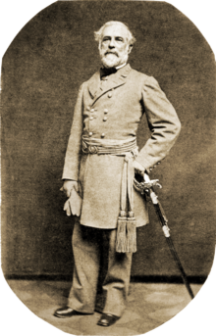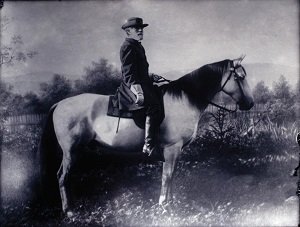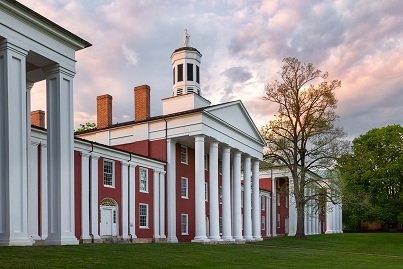The Real R.E. Lee
The American Civil War. It’s a topic as near and dear to me as a radiator in the middle of January in Ireland.
I’m a native of Augusta, Georgia and a culture that still thinks of the Civil War as “The War of Northern Aggression”. There are cotton fields where I’m from. There are clubs that re-enact the Battle of Aiken and women who dress up in hoop skirts and corsets for fun. The word “y’all” is a large part of my daily diction.
Now back to the American Civil War.

It was the bloodiest conflict in the history of the U.S. The war between the North and the South, Unionists versus Confederates, ended the lives of more than 600,000 American soldiers between the years 1861 and 1865. Records from the 1850 census showed the American population to be a little over 23 million.
To put those figures in perspective, the United States had a total population of roughly 132 million in World War II. 407,000 Americans lost their lives in the global conflict. Likewise, the United Kingdom, with a population of 48 million, suffered from less than 400,000 casualties.
Most people have learned a little about Robert E. Lee, Abraham Lincoln, Ulysses S. Grant, General Sherman and Stonewall Jackson through their studies of American History. But few people, regardless of their nationality, learn what became of these infamous men after their moments in the limelight.
Following the surrender of Confederate forces to General Ulysses S. Grant in Appomattox, Virginia, General Robert E. Lee didn’t have a home to return to. His Virginia estate had been confiscated by the Union Army and turned into a cemetery. That cemetery still exists; we know it now as Arlington National Cemetery.

In 1865, Robert E. Lee accepted the position of President at Washington College, a small school in southern Virginia named for George Washington, who had donated a large sum of money to the school in 1796. Lee used the last five years of his life to transform the small school nestled in the Blue Ridge Mountains into a bustling hive of forward thinking and education. He instituted an Honor Code and insisted that, “…every student to be a gentleman”. (The school was all-male until the mid 1980s.)

He enacted programs in Law, Commerce, and Journalism and recruited students from both the North and the South. His famous grey horse, Traveller, lived in a brick barn adjoining Lee’s home on the Washington College grounds.
Lee advocated respect for the law and authority and was known to expel students who violated these policies.
He had left his years as a Confederate general behind him and moved forward to shape the impressionable lives of Washington College students, the next generation of Americans.
And he succeeded.
In May of 2013, I graduated from Washington and Lee University, formerly Washington College. I studied Journalism, one of the many programs Lee implemented during his time at Washington College, and American History. Every Friday and Saturday night, I took Traveller, the late night bus system named for Lee’s horse, home from parties. My friends and I took the Honor Code as seriously as one would approach the topic of death. We left computers and valuables strewn through the library without fear; no one lied when the professor asked who had read the assigned material.
Lee once wrote:
The trite saying that honesty is the best policy has met with the just criticism that honesty is not a policy. The real honest man is honest from conviction of what is right, not policy.

Students lovingly refer to the school’s namesakes as ‘George and Bob’ and perpetuate the ‘Speak Tradition’ where they always greet passersby with a smile and a kind hello. All students are required to sign the Honor Code during orientation. I still remember standing in a line with 400 other freshmen, waiting to sign the infamous book that would bear my signature forever.
Lee moved to place trust in the students by transferring the System’s primary administrative duties from the faculty to the student body. Even more importantly, he did away with the former written rules and regulations and established one central idea: that each student “conduct himself as a gentleman.” It’s not an exaggeration to say that he literally had one rule.
I took all of my exams, quizzes, and midterms unsupervised. I signed my name on every assignment pledging that, “I have neither given nor received any acknowledged aid on this assignment.” While Lee himself may not have enacted all of the changes that pushed Washington and Lee University into the echelon of one of the top universities in the United States, he set precedents during his short tenure as president that are still heavily relied upon by the school’s current and past administrations.

Lee died during his fifth year as President of Washington College. He suffered a stroke while at his desk and died shortly after. Beneath the floor of Lee Chapel, one can see Lee’s desk as it was the day he died. Lee is famous for a war that would have carried on regardless of his existence. No one individual could have prevented the death and destruction that took place over four long years, the inevitable surrender at Appomattox on March 29, 1865 and the turmoil that followed.
We often forget that we, as readers, teachers, and students, perpetuate these larger than life figures. More often than not, the famous are nothing more than normal citizens who were very different from what people choose to remember them for. In many ways, Lee was fortunate to leave behind a legacy very distant from the war most associate him with. He had an opportunity to be remembered for something other than the arduous war campaigns and battle tactics. He believed that one should:
Get correct views of life and learn to see the world in its true light. It will enable you to live pleasantly, to do good, and, when summoned away, to leave without regret.
Lee is most certainly an enduring figure in history, but often not for the reasons he should be.
